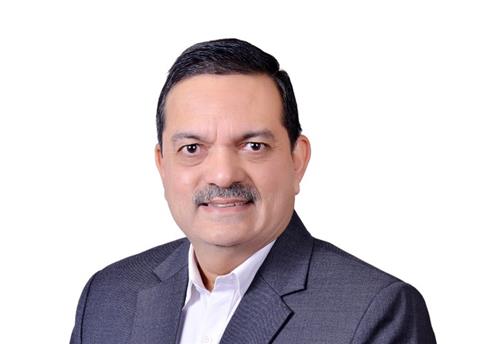India: An integral part of Nissan’s global growth plan
No carmaker can afford to ignore this important, fast-growing marketplace: a country of more than a billion people where we currently estimate there are around 13 vehicles for every 1,000 people — an ownership ratio among the lowest in the world. Compare that with 600 vehicles per 1,000 people seen in the so-called mature markets, and it is clear that India’s growth potential is huge. This budding growth is one reason why Nissan has identified India as one of the countries – alongside Brazil and Russia – where we will concentrate on building our presence.
Nissan’s potential expansion in India has clear benefits for our company: accessing a valuable growth market. But the benefits must be two-way to deliver real value to India. We believe that the Indian economy will not only benefit from Nissan bringing more great cars and commercial vehicles to market. The country will also gain from job creation, inward investment and technology sharing that will enhance its existing status as a manufacturing hub for global car making. We also believe our Indian employees benefit from our policy of employee diversity (gender, cultural and age) in our management structure. There are no-barriers or ‘glass ceilings’ to promotion – one simply needs to have talent, mobility, ambition and a proven track record of commitment delivery. Take a look at Nissan’s Top 100 executives and you will find that 50 percent are non-Japanese coming from 12 different countries. In contributing to the Indian success story, Nissan should also make progress on a key element of its mid-term business plan: global growth. For Nissan, India is a key strategic growth market and is an important part of ‘Nissan Power 88’, our mid-term business plan which, among various initiatives, aims to deliver 8 percent global market share and 8 percent consolidated operating profit margins by fiscal year 2016.
We will not be able to achieve those two goals by focusing only on so-called mature markets such as Japan, the US or Europe. So, as part of our global product offensive, we have cited India as one of Nissan’s success stories. This is a market where, with our partner Ashok Leyland, we recently launched the Evalia, an urban-class utility vehicle, and where total Nissan sales jumped almost 140 percent to more than 21,300 units in the six months to September 30. Indeed, Nissan more than doubled year-on-year sales in FY11 to over 33,000 units. Going forward, we have plans to double sales in FY12 and reach a sales volume of 100,000 units by 2013.
Against our global sales of almost 2.5 million units in the first half of fiscal 2012, India remains a modest contributor at present. But the pace of growth, the sheer size of the potential market and the scale of consumer demand encourages us to regard India as a key pillar of Nissan’s new market expansion. We project that total industry volume in India could top 4 million units in 2014. There is little doubt that India will be an important barometer of Nissan’s future success.
Potential future demand in this exciting market is one reason why Nissan, together with our Alliance partner, has committed to invest more than 4.5 billion rupees (US$990 million) over seven years at our plant in Oragadam, near Chennai, the first dedicated plant conceived and constructed as a joint Renault-Nissan manufacturing facility. That investment will increase the Chennai plant capacity to 400,000 units a year, making it one of the largest car plants in the country. From there, we will produce five new models. In addition to the Oragadam capacity, we still intend to exercise our plan to build a LCV plant in Pillaipakkam through our joint venture with Ashok Leyland. This allows us to build on the initial successes of the partnership seen through the sales of Dost and Evalia.
By lifting output at such plants, Nissan can deliver on its plans to introduce 10 new passenger-vehicle models in India by 2016. Of those vehicles, at least two will carry the famous Datsun badge.
Datsun coming
The return of the Datsun brand and its launch in India is another indicator of Nissan’s ambitions. We must produce vehicles that are relevant to local market conditions and demand. Datsun enables us to do that for the quickly developing middle class of India, many of whom are first-time motorists who are seeking modernity and quality at the same time as value for money. Datsun will come back as a brand for high-growth markets that will combine the reliability, design flair and engineering quality that is a hallmark of Nissan Motor Company, but at price points that are more accessible to this new class of ambitious and aspirational consumers.
 |
Hence, we expect India to be a home market for Datsun, with products designed by Indian engineers working at Nissan Motor Company, for Indian consumers. Our customers will be served by a growing dealer network, which we aim to have 95 dealers by end of FY12 giving us 75 percent of market coverage. A growing dealer network will help raise both Nissan and Datsun’s presence in local communities. This will help ensure that more of the cars we manufacture in India will also be sold in this market, rather than exported to other countries.
We have also noted the inexorable rise of the premium market in India, reflecting the growing disposable income of middle-class consumers. Their aspirations and taste for luxury is an encouraging sign for Infiniti, our premium brand that will inevitably come to India as we work toward lifting it into Tier 1 brand territory.
Commercial vehicle world beckons
Clearly, our growth will not be confined just to passenger cars. That is why we created our relationship with Ashok Leyland, our partner in the Indian light commercial vehicle market. Alongside Ashok Leyland, we have established three separate alliance companies to manufacture vehicles, powertrains and develop technology for next-generation commercial models. As part of that next-generation plan, we have launched the Dost, which has also won the LCV Carrier of Year 2012 award.
As you see, Nissan intends to continue to grow dramatically in India. In order to expand, we must raise the visibility and relevance of our brand to Indian consumers. I believe we made a splash not only in India, but also globally, by creating the ‘New Star of India’, the world’s first Bollywood movie auditioned on Facebook. Harnessing the star power of Ranbir Kapoor, this campaign also conveyed the world-class standard of service that will help us build loyalty with every Nissan customer.
That effort reflects two pillars of our global Power 88 mid-term plan: firstly, to strengthen Nissan’s brand power, replicating our existing reputation for innovative engineering and production with a more compelling sales, marketing and ownership experience for consumers – in India and elsewhere. Secondly, we are pursuing a strategy of increased sales power, better targeting customer needs in each market, and thereby lifting our sales volumes and market share.
Nissan is already the leading Japanese car brand in China, Russia and Mexico, and we aim to be the largest volume Asian brand in Europe by fiscal 2016. Building our business in India will complement our strengths in these other markets.
Lessons from India
Importantly, we can also apply lessons learned in India to other parts of our organisation. In other words, Nissan will benefit from its Indian presence in multiple ways: we can build market share with aspiring Indian motorists; we will build more cars sold in the domestic market; enhance our brand visibility; and export best practices from India to other emerging markets. This is particularly relevant given that Nissan is expanding rapidly in the so-called ‘ASEAN-5’ markets of Indonesia, Thailand, Malaysia, the Philippines and Vietnam.
Datsun, in particular, will play an important part in that expansion – and with the increasing influence of Indian management expertise within our organisation. Ashwani Gupta, program director for Datsun, is an example of an executive with global experience who is helping us to meet our Power 88 mid-term goals.
 |
Contributions from such managers, from brands such as Datsun and from markets including India will become major factors in Nissan’s global success story because they will offset some of the challenges we are seeing elsewhere. As we have acknowledged in recent earnings statements, Nissan is expanding globally to ensure its long-term success in the face of volatile market conditions in mature regions – particularly in Europe – and in spite of the challenges posed by the unrelenting strength of the Japanese yen But our ambitions in markets such as India are not born of defensive necessity. Rather, we are acting now to build a profitable global company. We also want to deliver models and localised production, in more markets, that will ensure that passenger and commercial road transport will become more accessible, and more affordable, to consumers who need it. This is implicit in Nissan’s policy to aim to build vehicles where we sell them as much as possible.
Consumers in a growing number of markets will benefit from Nissan engineering and technology, tailored to local demand. This is one reason why our versatile V-platform has been designed to deliver stylish, high-quality and affordable vehicles to customers in countries including India.
We expect the appeal of such vehicles and other new models we are developing to attract significant attention when we participate at Auto Expo, the New Delhi show, in January
2014. By showing off our products at such events, and by increasing our Indian presence in every part of the automotive value chain, Nissan will demonstrate its strategic intent to be a truly global carmaker with local market appeal.
If we can succeed even further with that strategic approach in India, it will be a major contributor to delivering well-engineered, innovative and exciting vehicles that enable Nissan to lift both our market share and our profit margins. That is our intent in India, and around the world. In 2013 we intend to deliver on that promise.
RELATED ARTICLES
'ADAS' crux lies in its proactive approach to safety enhancement': TaMo's Mohan Savarkar
Savarkar writes about the role of Active Safety Technology and ADAS in Compact Cars in augmenting inclusive vehicle safe...
Maintenance 101 for your electric two-wheeler, a cheat sheet for a breezy ownership experience
The experience of owning electric bikes is new, and remaining informed, aware and proactive will help in becoming better...
How technology can advance traffic enforcement for safer roads
By ensuring that only qualified drivers occupy the roads, authorities can substantially reduce the risk of accidents ste...





 By Autocar Pro News Desk
By Autocar Pro News Desk
 19 Dec 2012
19 Dec 2012
 4272 Views
4272 Views









